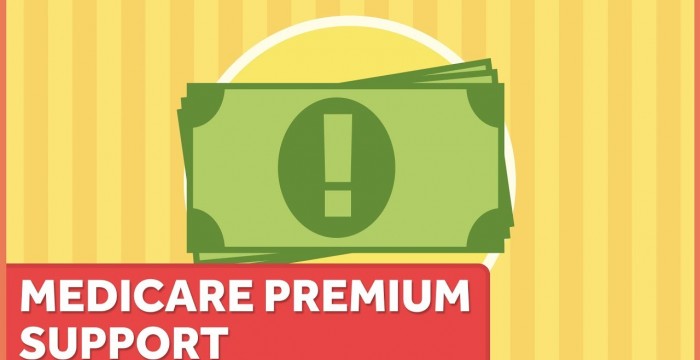Senior Trump Administration official Seema Verma has written that Medicare is in financial trouble, and one step in fixing it is giving consumers "incentives to be cost-conscious." This may be coded language for something called premium support for Medicare, which boils down to patients paying more, and the government cutting funding for medicare. Aaron has the details.
This episode was adapted from a New York Times Upshot article by Austin Frakt. You can find the article and the sources here:
Aaron has a book out now! It’s called The Bad Food Bible: How and Why to Eat Sinfully. You can order a copy now!!!
Amazon –
Barnes & Noble –
Indiebound –
iBooks –
Google –
Kobo –
Any local bookstore you might frequent. You can ask for the book by name or ISBN 978-0544952560
John Green — Executive Producer
Stan Muller — Director, Producer
Aaron Carroll — Writer
Mark Olsen – Graphics
Meredith Danko – Social Media
And the housekeeping:
1) You can support Healthcare Triage on Patreon: Every little bit helps make the show better!
2) Check out our Facebook page:
3) We still have merchandise available at







Dr. Carroll give me some love!! ❤️
I was worried this was going to get too political, but it stayed very factual. Thank you, sir.
look up dunning kruger … everythings political…
I think you mean partisan .
The first sentence was political in the way it was delivered. What are you talking about?
Wow this video has no interaction, why?
Hunter Geerts you’re right?? I gave it a like just because of this comment pointing it out.
People might not interact, because it might be too hard to understand the topic.
I’m from Canada, and I find this topic very difficult to understand.
well to be fair to them it is a lot harder to form a pitchfork mob when half of them are tuberculotic or have an iv in … so much harder to swing the fork…
mmmm yes its showing up the private system … and we cant have that now can we … you know heresy and all…
Could premium support be the government standard for the rest of us, while regular Medicare goes to young children and older people? Would that be better, about the same or worse that today?
Is it weird that I think this guy is the secret third Green brother.
Sages2
Maybe a cousin or uncle
Maybe if the rest of us younger more healthy people were allowed to buy in to medicare coverage we could get good care and help subsidize the premiums older sicker people are currently paying. The great thing about medicare is that it is very widely accepted. It is hard to even be able buy such a large network of providers commercially.
MethosOhio because that would be socialized medicine. Life as we know it would change. No more freedom ever. I’m hyperventilating just thinking about it.
Isn’t that how obamacare was suppose to work?
You’re already paying for Medicare through payroll if you’re employed. How much do you want to bleed young and healthy people for the benefit of richer old people?
I was thinking for unemployed or self-employed people. You would just be buying Medicare instead of Blue Cross & Blue Shield or whatever. Because the major players won’t even sell to individuals at all. The problem isn’t just affording care as an individual it is having insurance access at all.
Medicare is unconstitutional. Trump should re-appeal medicare, not fixing Medicare.
Sorry i don’t want to bail out one who don’t eat clean & don’t work oput @bob price
@keenan Sorry Bro ! I am a 20 years old guy. I just don’t like government stole my money for geezer. Healthcare infrastructure already exist before medicare.
Sorry bro, but you’re actually old, but you won’t realize that fact till much, much later. Also, No, healthcare’s support within infrastructuee would NOT exist if it were not through public funding and taxes, which includes Medicaid and Medicare both
Bullshit! Since Medicaid & Medicare get passed, healthcare cost inflation goes rapid. And private sector industry is not part of medicare medicaid. Majority of drug patent come from private sector. What government did on healthcare is make healthcare price sky rocket, case point FDA ban on drugs import. Your logic for government involvement is base appeal on pity & appeal to authority. Not what actually works.
You know if we cut the military budget by 1/3 we’d still be spending more than twice what any other country is spending. Then we could take that $200,000,000 (yes, 1/3 of our military budget is 200 BILLION dollars) and fix both Medicare and Social Security.
SlimThrull whenever a republican says we need to spend more on the military, and “deficits don’t matter “ , they are really saying we need to choke off Medicare and SS, by drowning it like the baby in bath water.
I agree with you but it’s not just the GOP that does it. Bernie Sanders fought very hard for the F-35 jets program. You know why? Because it brought in a TON of jobs to Vermont.
Is overuse of Medicare really such a huge problem?
no, not really.
Can someone summarize what he is trying to say?
(I am from India, so I don’t understand many terms he is using… ;p)
Plus I am lazy xD
I’ve seen, and I believe you’ve said, one of the major advantages of a single payer healthcare system in terms of costs is the effect of collective bargaining, however, this comes at the cost of competition at the consumer end? is a system that takes advantage of both possible? (eg: a medical industry trade organization representing all insurance companies collectively bargains with doctors, clinics, etc to negotiate prices, individual companies represented by that organizations then compete with each other to attract consumers.)
I don’t think choice is really that much of a priority with healthcare. Most of the choices offered are either something the average patient as now idea how to make, are completely obvious or nearly irrelevant. If I not hit by a busy I wouldn’t want the additional stress of haven’t to making more bloody choices or the time. A lot time if you give someone a lot of the choices once they’ve made the choice they’ll just feel they screwed up compared to an imaginary ultimate best choice that they would have found if they just searched longer.
I don’t care about choice either in that regard. Fundamentally, a new liver is a new liver any way you slice it. I’m just viewing this from an economist’s point of view and from that, competition is valuable in how it reduced overhead and improves efficiency.
I don’t know what you’re talking about that YouTube doesn’t want to sell to advertisers given some of “Healthcare Triage’s” content… I have ALWAYS had watch it advert before my selected video with “Healthcare Triage” played.
Hello, can you please do a video on MSG (monosodium glutamate) and one about plastic bottles and hormones? Thanks 🙂
Seema Verna’s goals are the same as Paul Ryan’s: To kill the Medicare and Medicaid programs (along with Social Security).
I’m not sure Dr. Carroll pointed out that Medicare ALREADY hits beneficiaries hard with high out of pocket costs. Which, theoretically, should induce the behavior that Seema Verna says she wants to see. As the Commonwealth fund has said, [Medicare] “contains no ceiling on out-of-pocket costs for covered services, exposing beneficiaries to high costs.”
The Commonwealth fund goes on, “More than one-fourth of all Medicare beneficiaries—15 million people—spend 20 percent or more of their incomes on premiums plus medical care, including cost-sharing and uncovered services. Beneficiaries with incomes below 200 percent of the poverty level (just under $24,000 for a single person) and those with multiple chronic conditions or functional limitations are at significant financial risk. Overall, beneficiaries spent an average of $3,024 per year on out-of-pocket costs.”
If this theory that passing costs on to beneficiaries would restrain costs worked, we’d already see it working. This is just another attempt to financially punish people who become ill.
My social security premium already went up a significant amount. Wiped out that raise. THANKS.
So republicans may harm a program that helps keep healthcare costs down? cool
Single payer healthcare for all